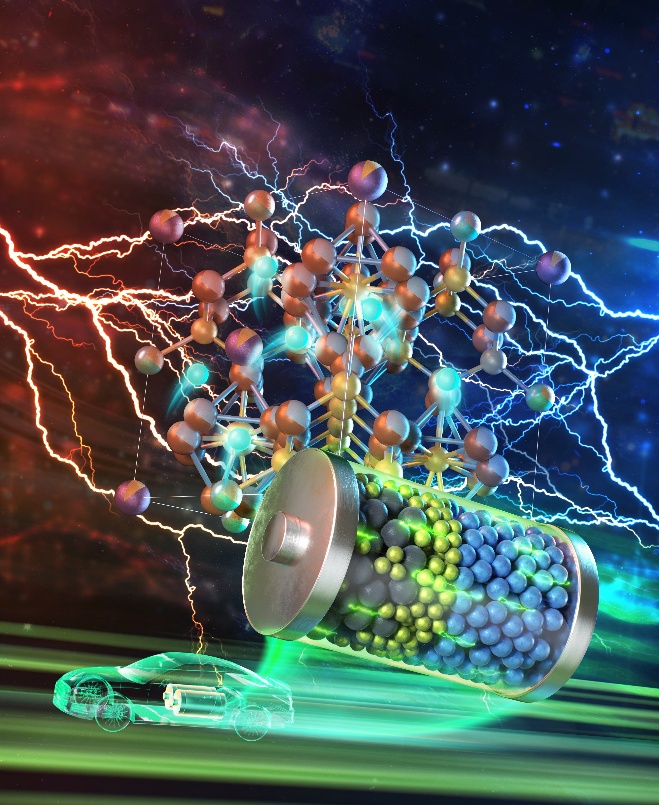All-solid-state lithium-ion batteries (ASSBs) have garnered significant attention for their high energy density and superior safety. However, their commercialization remains challenging due to the lack of solid-state electrolytes (SSEs) with both high ionic conductivity and stable interfaces. To date, only a few SSEs have achieved ionic conductivities exceeding 10 mS/cm at room temperature.
Recently, a research team led by Prof. WU Zhong-Shuai and Assoc. Prof. SHI Haodong from the State Key Lab of Catalysis has developed a high ionic conductivity sulfide-based solid electrolytes, enhancing the performance of ASSBs. Their study was published in ACS Energy Letters.

A superionic Li20/3(GeSiSb)1/3S5I conductor is developed for all-solid-state power batteries
(Image by MA Yuxin and SHI Haodong)
The researchers developed the novel electrolyte, Li20/3(GeSiSb)1/3S5I (LGSSSI), by employing a multi-cation (Ge, Si, Sb) doping and substitution strategy. The electrolytes exhibited exceptional ionic conductivity, attributed to their low lithium-ion migration activation energy (0.17 eV). After cold pressing, LGSSSI achieved an ionic conductivity of 12.7 mS/cm, which further increased to 32.2 mS/cm after hot pressing.
By integrating LGSSSI into ASSBs, the researchers achieved high cycling stability under ultra-high cathode mass loading (100 mg/cm2) and across a wide temperature range (-20°C to 60°C). Additionally, LGSSSI demonstrated excellent interfacial compatibility with various cathode and anode materials, including LiNi0.8Mn0.1Co0.1O2, LiCoO2 cathodes, lithium-indium alloy, and silicon-carbon composite anodes.
"Our study lays an important foundation for achieving ASSBs with wide temperature adaptability, high cathode loading, and long cycle life," said Prof. WU.